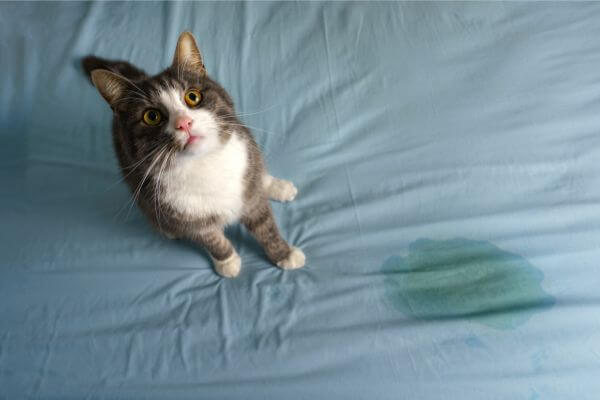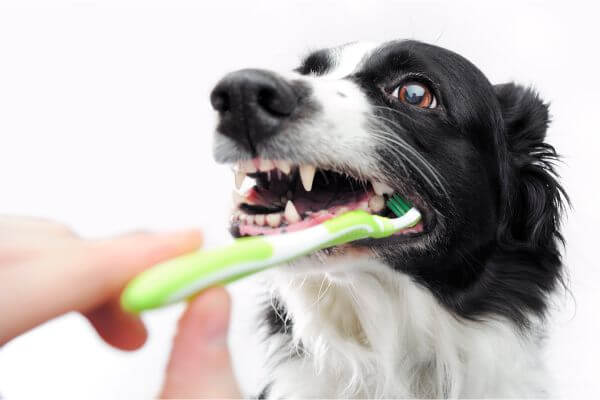If you’re a cat lover, you’ve probably faced one of the most common and frustrating challenges: eliminating the persistent smell of cat urine. But did you know that cat urine smell can be eliminated with common items from your kitchen? Would you like to learn how to effectively and safely neutralize your kitty’s urine odor?
Being a cat owner brings many joys, but also some challenges, such as dealing with the smell of their urine. This characteristic odor can be tough to eliminate and often infiltrates carpets, furniture, and other corners of the house.
But what makes cat urine so peculiar and hard to deal with? And more importantly, how can we get rid of it efficiently and safely for our beloved felines?

In this article, we’ll explore some intriguing questions and provide practical solutions to this household challenge. First, we’ll reveal which magical ingredients can transform your home into a feline odor-free environment. Then, we’ll discover what’s behind the strong odor of cat urine and learn how to neutralize it effectively and safely for your pet.
Finally, we’ll unveil the secret of cleaning experts. They have specific techniques to definitively eliminate cat urine stains and odors, even in the most unexpected places in your home. With these tips, you’ll be well-equipped to face this challenge and keep your home fresh and welcoming, both for you and your feline friend. Shall we?
Why Does Cat Urine Have Such a Strong Smell?
Before we dive into our helpful tips, it’s important to understand why cat urine has such a strong odor. Cats are known for their cleanliness and hygiene. They not only use the litter box for their needs but also bathe constantly and appreciate a clean and tidy environment.
But what causes the strong smell of feline urine? Experts point out a few reasons for this distinctive characteristic:
- Concentrated Urine: Cats originate from arid areas and tend to drink less water than ideal. This results in more concentrated urine, which naturally has a stronger smell. The strong smell is also due to the high concentration of urea, creatinine, uric acid, and other compounds that cats naturally produce.
- Pheromones: The urine of unneutered cats contains hormones and pheromones that further intensify the odor.
- Territorial Marking: In addition to being a physical necessity, cats use urine to mark their territory. This type of urine, usually stronger, is commonly sprayed against walls and can be the cause of the bothersome odor many owners notice.
- Old Urine and Ammonia: Over time, cat urine can emit an ammonia smell, mainly due to bacterial decomposition. Cleaning quickly is the best way to prevent this odor from intensifying.
These factors are usually the main culprits for the strong odor of cat urine. However, veterinarians warn that, in some cases, an abnormal urine odor may indicate health problems.
This is especially true in older cats, where renal function may be compromised. If you notice any change in your cat’s urine odor, it is advisable to seek guidance from a veterinarian, who can perform tests and indicate the most appropriate treatment.
Why Do Cats Miss the Target and Pee Outside the Box?
Cats are creatures of extremely hygienic habits, but even the most elegant felines sometimes miss the target, leaving us with the challenge of eliminating the urine smell.
The issue of peeing outside the litter box is a puzzle that intrigues many cat owners. It can be a territorial marking, a warning sign of health problems, or even a rejection of the litter box location. Understanding these signs is essential to maintain harmony at home and ensure the health of your furry four-legged friend.
Eliminating Odors from Your Cat’s Litter Box
When it comes to keeping your cat’s litter box odor-free, it’s essential to remember that their sense of smell is much more sensitive than ours. A strong odor in the litter box can be so unpleasant for your cat that it may lead them to avoid using it, choosing other inappropriate places for their needs instead.
The main reason for odor in the litter box is saturation, meaning when it exceeds its capacity to absorb more urine. To prevent this, it’s important to pay attention to the usage time and the absorption capacity indicated by the litter manufacturer.
Another crucial aspect is the number of cats sharing the same litter box. With more cats, the litter saturates more quickly. Additionally, the location of the litter box should be well-ventilated to prevent the odor from becoming concentrated and stale.
The type of litter chosen also plays a vital role. In environments where adequate ventilation cannot be guaranteed, it is advisable to opt for litters with high absorption and odor neutralization capacity, such as Silica Gel Litter, for example.
It’s important to note that while perfumed litters might seem like a good option for owners, they can be uncomfortable for cats due to their heightened sense of smell. Choosing the right litter for your cat can make a significant difference in maintaining a pleasant environment.
To reinforce the fight against odors, consider using odor-neutralizing additives, which can be applied either on top of or underneath the litter, depending on the product instructions. This is an effective strategy for keeping your cat’s litter box not just clean, but also pleasant for your pet and the entire household.
Effective Homemade Solutions
Vinegar and Water: A simple solution of vinegar and water can neutralize the odor of cat urine. Mix equal parts of white vinegar and water and apply to the affected area. Vinegar is a natural deodorizer and can also help discourage your cat from urinating in the same spot again.
Baking Soda: Baking soda is another natural deodorizer. Sprinkle generously over the affected area, let it sit for a few hours or overnight, and then vacuum.
Hydrogen Peroxide: Mix hydrogen peroxide, liquid detergent, and baking soda to create a paste. Apply to the stain, let it sit for a few minutes, and then wipe clean. First, test in a discreet area to ensure it doesn’t discolor the fabric.
Commercial Products
There are several products on the market specifically designed to eliminate cat urine smell. These products contain enzymes that break down the components of cat urine, neutralizing the odor. It’s important to follow the manufacturer’s instructions when using these products to ensure effectiveness.
Prevention and Continuous Cleaning
Prevention is always the best strategy. Keep your cat’s litter box clean, removing waste daily and changing the litter regularly. Additionally, consider having more than one litter box if you have more than one cat.
Dealing with Old Stains
For older cat urine stains, a more intensive treatment may be necessary. In these cases, using a steam cleaner or hiring a professional upholstery and carpet cleaning service might be required.
Final Considerations
Eliminating cat urine smell requires patience and persistence. Try different methods to discover what works best for your specific home and situation. And remember, keeping the litter box clean and providing a comfortable environment for your cat can help prevent accidents in the future.
Conclusion
In this article, we explored various techniques and solutions to deal with the common challenge faced by cat owners: how to remove cat urine smell. From homemade solutions to commercial products, each method has its merits. The key is consistency and adaptation to the specific needs of your cat and your home.
Dealing with cat urine doesn’t have to be a constant battle. With the right strategies, you can keep your home fragrant, fresh, and welcoming, ensuring also the happiness and comfort of your feline friend.
Remember, understanding and care are fundamental in the relationship with your whiskered companion, and facing these small challenges is part of the rewarding journey of living with these mysterious and enchanting beings.
Note: This article is intended to provide an overview of the topic and is not a substitute for consulting a veterinary professional or cat behavior specialist, especially if your cat’s urination problems are frequent or seem to be related to health or behavioral issues.


